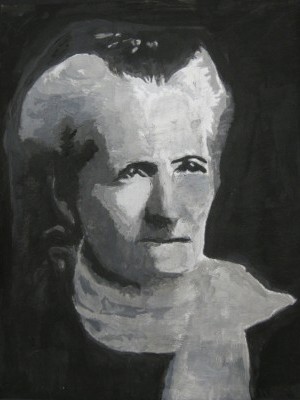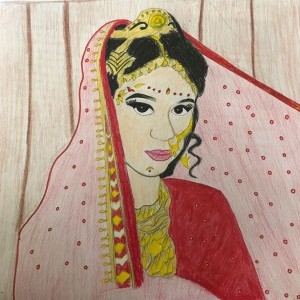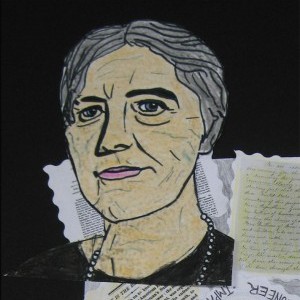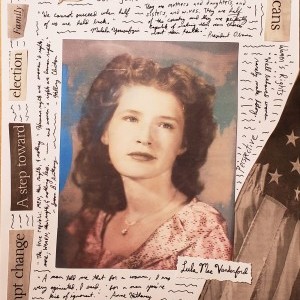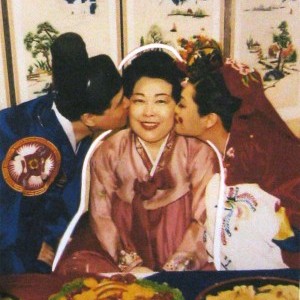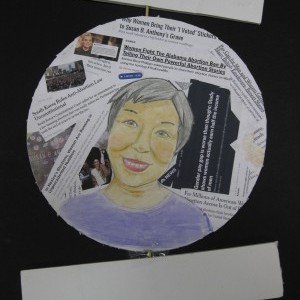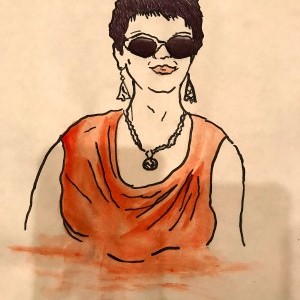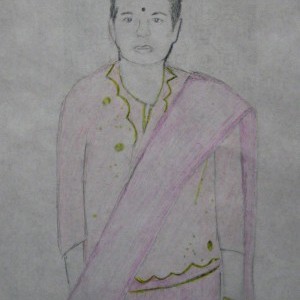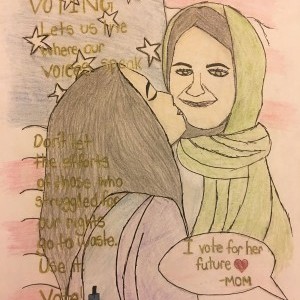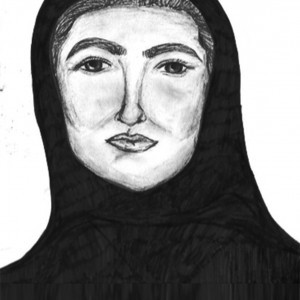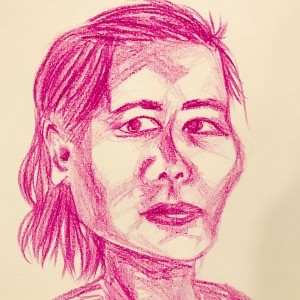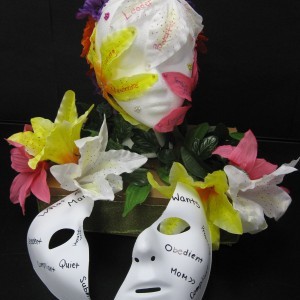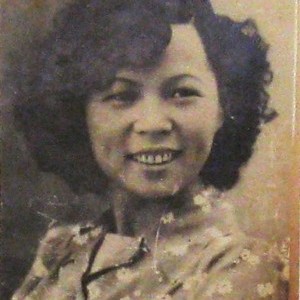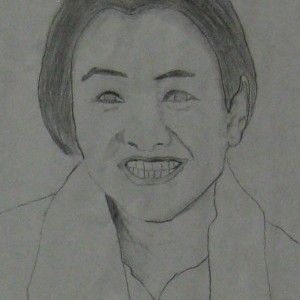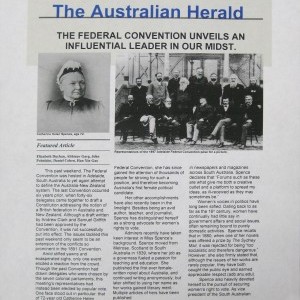Betty Jin, Annlin Su, Jonathan Tran, Aarti Patel, Manraj Singh & Harry Zhu
Townsend Harris High School | Flushing, NY | 11th Grade
Inspirational Family Member
My Sister
Being the eldest daughter of Chinese immigrants in America, it’s easy to be silenced and ignored. Yet, despite being a woman and a person of color, Karen Su, my elder sister, truly believes that she, with the help of others, can transform the world around her. Consequently, she decided to major in political science at Wellesley College. To her, it is essential to make one’s voice heard, and so, she continues to be involved in the community in various ways, such as volunteering on campaigns and mentoring first-generation students. But the most impactful way she is able to make her voice heard is voting.
The United States rests on a foundation of democracy and with that comes voting. This tool is especially important for women and other underrepresented groups since it is one of the few effective ways that they can take control of their lives and the world they live in. As Karen explains, “Heteropatriarchy is so entrenched in American history and culture. We must take every opportunity to exercise our right to vote in order to protect our interests and to dismantle systems of oppression, not only for ourselves, but for those who are less privileged than we are.” As members of society, it is crucial to work together and help the unfortunate so that they can grow stronger. Although it may be frustrating to see matters not go one’s way, one should not be discouraged and should continue to remember the importance of voting. "It’s hard for one voice to be heard but it’s really hard to not hear a deafening collective voice. Just like it’s hard to see one vote make a difference, but it’s hard to ignore a floodgate of votes,” Karen believes.
Considering the Woman’s Suffrage Movement and U.S. history overall, it would be wasteful to throw away one’s vote and remain apathetic when it comes to electing our leaders. Reflecting on the movement, Karen feels a great responsibility to take advantage of this privilege that she has because of the battles fought for this right. Especially in consideration of recent events regarding the LGBTQ community and abortion, she emphasizes that: “a single vote can be the deciding factor between taking 100 steps forward towards a better future and taking 100 steps backward bringing our country back to our shameful past.”
Historical Figure I Admire
Charlotte Despard
Charlotte Despard is significantly known throughout American history as can attest the prolific accounts of her aspirations towards achieving women’s suffrage. At a time when war and violence were at the forefront of the United States, she considered herself to be much of a pacifist. A pacifist, in the sense that, “‘Their fight should not be with weapons of war, but with spiritual darkness in high places. Women could stop war if they chose.’” The epitome of her life as a progressivist has been long regarded for her issues towards the women and children belonging to poor backgrounds during war. With her remarkable approaches towards socialism, Despard grew intensively into a notable figure that contributed great change to the past view of the anti-suffragist world.
To begin with, coping with a childhood that lacked parental guidance and support, she often leaned towards those that stood by her the most, her relatives and her spouse. She grew more interested in studying the problems of society and progressive causes through what she learned from her husband Maximilian Carden Despard. In time, she began to attend more rallies and conventions in order to showcase her stance upon the plight of women during such a period of time. Becoming a supporter of the women’s suffrage movement, Despard joined groups such as the National Union of Women’s Suffrage Societies and then later on, the Women’s Social and Political Union in order to serve demonstrations and raise a significant awareness towards the cause. Her additional efforts in participating through newspaper publications has also proven her further optimism in earning a voice for women all around the country. She and many other like-minded women were now able to protest against certain systems of practices set forth upon them. With the establishment of the Women’s Freedom League she helped found, Despard became affiliated with many forms of opposition with the United States. The refusal to pay taxes and filling out census forms portrays the suffragettes’ resilience against anything that subdued them from making a stand. For instance, Despard’s multiple accounts of imprisonment have shown that her actions were now paving the path for others to grow into admiration and support. As time went on, she didn’t refrain from continuing what she had started. Despard remained absolute upon her fight to attaining the rights that were entitled to women since the beginning of mankind.
Charlotte Despard grew into prominence and popularity due to the rise in progressivist ideals that were surrounded by the upcoming war within the United States, World War I. From arranging a campaign for the upcoming war, to arranging anti-war rallies in Trafalgar Square, to even establishing the Women’s Freedom League Suffrage National Aid Corps, Despard aimed to solve the everyday issues met by millions of women in both the United States and Britain. Despard has been known for her contributions at setting up workshops to produce clothes; opening vegetarian restaurants in London; setting up milk depots, as well as maternity clinics, and a hostel, through which children could stay at, while mothers recovered from following aspects of health endangerment: childbirth and many other illnesses. Not only that, but her founding of the League of Rights for Soldiers’ and Sailors’ Wives and Relations allowed for post-war social development for many women.
What the Project Means to Me
After researching Charlotte Despard and her invaluable contributions to women’s suffrage, the importance of women’s rights are all the more meaningful. As a child of immigrants, voting never seemed incredibly meaningful. During my early childhood, neither of my parents were American citizens, prohibiting them from participating in federal elections. My father later became a citizen while my mother continues to live here with a green card. At home, we would sometimes talk about politics and the local, state and federal elections, but our conversations never became actions; neither of my parents have ever voted in the roughly twenty years that they’ve been in this country. As such, politics never really played a role in my life until school history lessons began to teach the importance of our rights. It was fascinating to learn about the civil rights movements, and the women’s suffrage movements were especially interesting because the concepts of sexism and gender inequality were bizarre to me that was in 2nd grade. This introduction to the importance of voting has influenced the person I am now; as my sister and I grew older, talk about politics became more frequent at the dinner table and as history became more about the development of the United States and the roles in government, suffrage only became more interesting.
With this project, my group researched Charlotte Despard, an author who emphasized the necessity of helping the poor and the right to vote. The struggles that she went through and the determination that she had is inspiring, especially in times like these. With recent laws going back in time rather than moving forward, the right to vote is all the more a symbol of the progress we’ve made against gender roles. Not only do we need to support women, but we need to encourage all ages to embrace the role that they play in deciding the future of our country.
Explore the Archive
More From This Class
Click on the thumbnails below to view each student's work.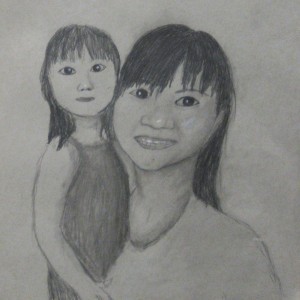
Vivian Chen, Josephine Chen, Ivan Chan, Zafirah Rahman, Neeharika Reddy, Daniel Shi, Daniel Shi, Jacqueline Cho & Osiris Guerrero

Jennifer Moran, Adebola Ademola, Julia Hong, Vicki Kanellopoulos, Inga Kulma, Maimunah Virk, Deborah Molina & Kailey Van
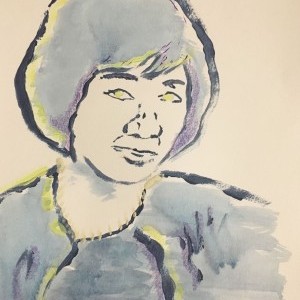
Kristina Chang, Sarah Chowdhury, Bethany Leung, Letian Fang, Cathy Choo, Kelly Chan, Emily Tan, Adamary Felipe & Kenney Son


